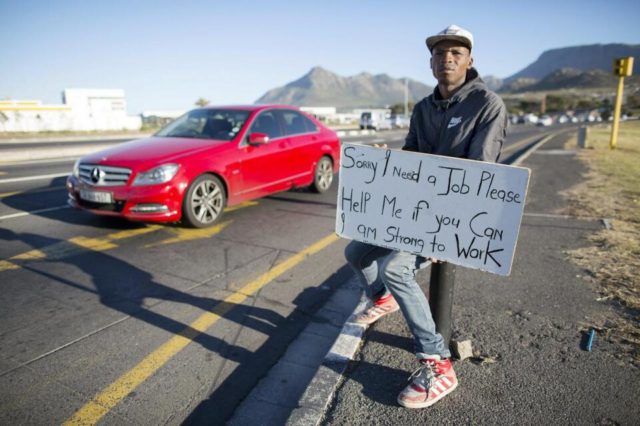There were 1.9 million UIF applications in the first two weeks of the national lockdown.
Cape Town – The unemployment rate is expected to rise to 50% while there were 1.9 million UIF applications in the first two weeks of the national lockdown.
Co-operative Governance and Traditional Affairs Minister Nkosazana Dlamini Zuma on Tuesday briefed the National Council of Provinces (NCOP) on measures to curb the spread of Covid-19.
“This is also becoming an economic crisis and how the fault lines in South Africa are so deep. We see hunger, poverty and unemployment and the conditions in which our people live. We are now at a point where we have to ease the lockdown, but the president said himself we should not have an abrupt end to the lockdown because we could see a surge in infections,” Dlamini Zuma said.
She said the country had to approach multilateral institutions to find money.
“Our economy has declined, not only because of the lockdown but because we have been downgraded and we have about a thousand companies whose employers have applied for UIF. The tourism sector in particular will be the hardest hit because we have closed the borders of the country and we have closed tourism in the country. Some of the businesses will not survive and vulnerable households have lost a lot of income.”
Dlamini Zuma said there had also been a decline in municipal revenue.
“While the revenue for municipalities has declined, the demand for services has increased, such as water, which is basic but municipalities could not supply this so national branches have had to pitch in.”
South Africa’s response to Covid-19 is expected to change under level 3 restrictions and the president’s national coronavirus command council is due to unpack its plans today.
Dlamini Zuma said the government had decided to adopt a risk-adjusted approach to the lockdown focused on two criteria: the rate of infection and the readiness of the health system.
“We also have to look at the socio-economic impact of the coronavirus. As we rebuild the economy we must look at building sustainable and resilient communities,” Dlamini Zuma said.
She said during the lockdown government had encountered a wide range of problems including litigation.
“We deal with many cases of people challenging the government’s regulations,” she said.
Also briefing the NCOP, Health Minister Zweli Mkhize said: “Covid-19 still remains a danger that is worse now than when the first case broke.
“We have seen our numbers increasing to 23000 and above What we have learnt is that flattening the curve is vital.”
Mkhize told the NCOO there was a massive testing kit shortage. A total of 596 777 tests have been conducted. As of May 24, 12 922 new tests were performed and of those 2 999 tests (23%) were from community screening and testing and 5 473 (42%) have been in the public sector.
“There is a world shortage of supplies and we are running into a crisis where suppliers are not being able to meet our demands and everyone is trying to get kits and we are already seeing a massive backlog.
“We need society to understand that this is becoming a constraint and becoming not so much about our capacity and more about the global suppliers responding to our requests,” he said.
Premier Alan Winde said: “The backlog in the Western Cape has now grown to approximately 18000 tests.
“In the absence of a rapid-test solution, the decision is to prioritise health care workers, those in hospital and those at high risk, including the elderly and those with underlying conditions in order to ensure the most efficient way of managing the curve of the disease in this phase of community transmission.”
@MarvinCharles17
Cape Argus








